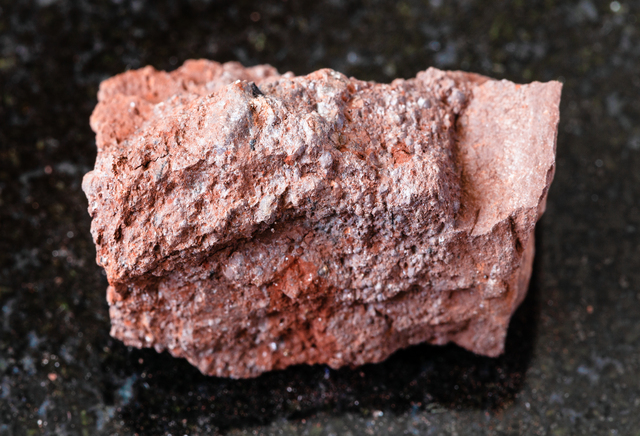Interesting Facts and Opportunities of Bauxite Rocks

In the world of mining and natural resources, bauxite rocks are highly sought-after commodities due to their versatile applications in various industries. Here at Credebt® we are highly interested in companies that deal in mineral and natural resources with fascinating components. We are currently working with a client who is based in Cameroon and engages in the export of bauxite rocks to sell to their customers in China. They pride themselves on providing high-quality commodities that meet the demands of their customers.
Bauxite is a type of sedimentary rock that is rich in aluminium minerals. It is formed through the weathering of aluminium-rich rocks such as granite and basalt. The minerals then undergo a process called lateralisation, where intense weathering in tropical climates leaches out silica and other impurities, leaving behind a residue rich in aluminium hydroxide. The bauxite deposits are commonly found in tropical and subtropical regions, with the largest reserves located in countries like Australia, China, Guinea and Brazil. The concentration of bauxite in specific geographical regions has a significant impact on the global aluminium supply chain. The physical properties of bauxite rocks include a dull lustre, earthy texture and a wide range of colours such as red, brown and yellow. These rocks exhibit unique properties that make them ideal for various industrial applications. Additionally, its hardness, colour variations and corrosion resistance further enhance its value in industrial processes.
Bauxite rocks hold significant industrial importance due to their rich aluminium content making them a valuable resource for various industries worldwide. From aerospace technology to beverage cans, aluminium derived from bauxite plays a pivotal role in modern society. Furthermore, these rocks are also crucial ingredients used in the production of cement as it is used as a flux to reduce the melting point of raw materials and promote the formation of clinker. The addition of bauxite helps improve the strength, durability and workability of cement, making it an essential component in the construction industry.
The exploitation of bauxite rocks presents various opportunities that extend beyond mere industrial applications. It presents lucrative investment opportunities for companies seeking to capitalise on the growing demand for aluminium products worldwide. It also drives infrastructural development and generates revenue through exports therefore giving these countries leverage to boost their economic growth and diversify their industrial base. With advancements in technology and sustainable practises, bauxite extraction can be done efficiently and responsibly, which opens new opportunities for resource utilisation and value addition. Innovations in refining processes, waste management techniques and product diversification have expanded the scope of bauxite applications beyond traditional aluminium production. Additionally, research into alternative uses for bauxite residues presents exciting prospects for the future of this mineral.
In conclusion, bauxite rocks are a valuable natural resource with a wide range of uses and opportunities. From aluminium production to economic development, bauxite rocks play a crucial role in various industries and societies around the world. By understanding the interesting facts and potential benefits of bauxite rocks, we can better appreciate their significance and potential for the future.
